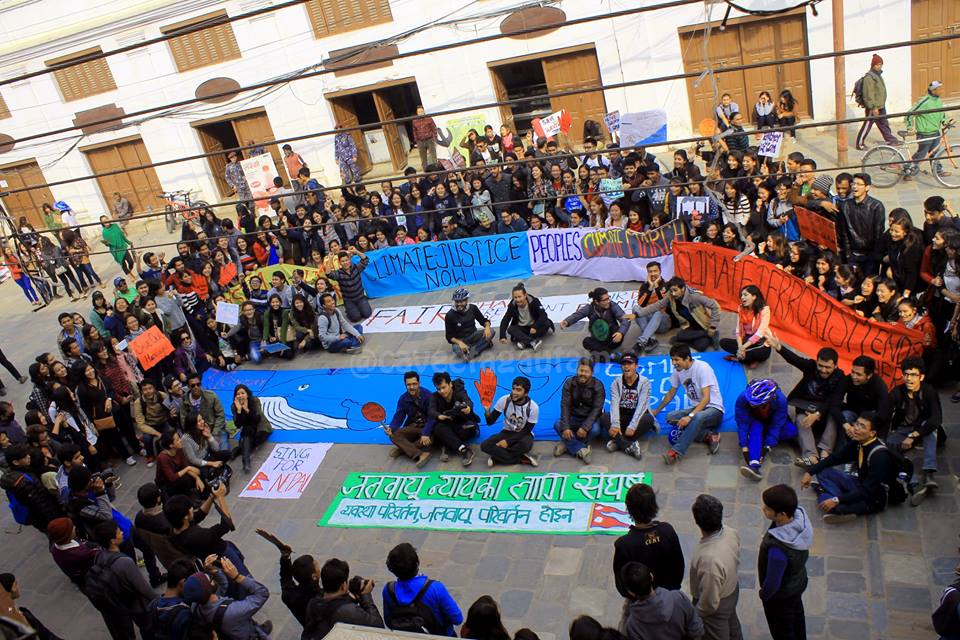The very unruly, coincidental and downright comical nature of our reality is that we are living on a floating mass in the middle of a vast expanse of nothing; and yet we are alive, and a top dog in our niche.
From having to scavenge treacherous terrains in search of food, to now conquering the skies and seas alike, humankind has more than made their presence felt on earth. We are considered the ‘top dog’ in our niche because of the complex machinery that hides within our skulls. The human brain is the single most complex organ. Think about the millions of neurons firing in your brain every second; as many neurons as there are stars in the sky, that help give birth to poems like Ghaasi, plays like Othello, and ideas like the Theory of Evolution. It is also what gives us the ability to be empathetic and survive as a species.
By acknowledging the gift that is the human brain, this World Environment Day, we must also accept the responsibility that comes with it, and start advocating for the right kind of change. Now more than ever, we must secure a sustainable future by instilling pro-environment values in our children, and ourselves. It is time we give the Mother Earth due credit by teaching our children what it takes to protect her: Heart.
Scientists figure out how vampire bats got a taste for blood

The Greeks said, “a society grows great when old people plant trees whose shade they know they shall never sit in.” This encourages the notion of altruism, most commonly seen in animals called ‘reciprocal altruism’ - a behaviour that benefits another at one’s own expense - or in simple terms, having a heart. A good example of this is seen in the feeding habits of vampire bats. Since they only survive on blood and die within 72 hours of not having eaten, Vampire Bats share food by regurgitating blood; which comes at a great cost for the giver but could mean the difference between life and death for the receiver. Just as the Vampire Bats exercises its existence in service of others, every being has a role to play in nature, and if all actors uphold their end of the bargain, we all learn to cohabit the planet in harmony, and thrive.
Our self-proclaimed role in the ecosystem as ‘top of the food chain’, is to protect, not to destroy. However, it is a common flaw of human nature that we take things for granted without seeing the destruction caused by our apathy. A common thread in that common flaw is our lackluster attitude to our Mother Earth. For a species that is, by our own standards, superior to the Vampire Bat, it seems ironic that we would destroy the very thing that sustains us.

However, there is still hope in the next generation - The Generation Green. Even though today’s youth have spent their formative years in a constant state of uncertainty, our young minds have been able to use the resources at their disposal, like the power of social media, to make their voices heard. More and more Nepali youth have been stepping forward and using available public platforms to make their voice count. From advocating against social injustices, such as the recent cases of inhumane caste-based violence, or to voicing their dissent over the large-scale felling of trees in the name of “development”, empowered youth with the correct knowledge and skills can help reverse the damage we have caused to our environment. But it is important to understand that young people need an enabling environment to thrive, one that promotes green economic pathways, and sustainable development to create jobs and that revives the economy.
WWF Nepal’s Generation Green Program seeks to do exactly this by providing a platform - to educate, engage and empower youth and strengthen their involvement in advocating for the planet and promote smart choices for the environment. The program seeks to do this by promoting learning-by-doing paradigms and progressive pedagogy in schools, and introducing ‘social action models’ such as promoting green innovation, among youth.
The youth of Nepal need diverse inclusion and genuine access to influence in the government; they need extensive reforms to policies for SME growth, and structural solutions to address unemployment and environmental damage. Development does not need to come at the cost of the next generation’s future.
In a post-COVID 19 future, when the dust settles, we must take concrete actions in securing a sustainable tomorrow, things cannot and should not go back to business as usual. If a pandemic of this magnitude does not change consumer behaviour, and bring significant changes to policies, there will be no tomorrow for our youth to inherit. Countries across the globe have achieved great success in controlling the pandemic, and reviving the economy by providing young people with a platform to ignite mass transformation in their mindset— but this upward trajectory all starts with a single step toward the right direction. Only the young can account for the debt we have incurred, only the young can be loud enough to be heard, only the young can stand undeterred.
KC is a program officer (education and campaigns), WWF Nepal.


































